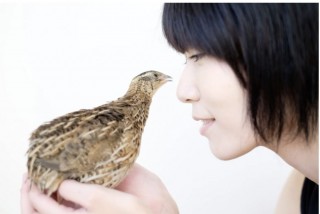Loading
Search
▼ Japan’s Quail Egg Industry Takes A Severe Blow After A Sharp Decline In Use In School Lunches
- Category:Other
Quail eggs, known as uzura-tamago in Japanese, are highly nutritious and only one-fourth the size of a chicken egg. They’re a common addition to many Japanese dishes, including rice bowls, skewers, bento, and warm stews such as oden in the colder months, and can be easily purchased at standard supermarkets.
They were also a common fixture in Japanese school lunches (kyushoku) up until this past February, when an elementary school student in Fukuoka Prefecture died after choking on a boiled quail egg.
Since then, numerous school districts across the country have discontinued use of the eggs in school lunches out of fear of a similar accident happening.
Nowhere is the discontinuation of quail eggs in school lunches being felt harder than in Aichi Prefecture, where 23 farms produce over 60 percent of the eggs nationwide. The Toyohashi Quail Farming Cooperative based in Toyohashi, Aichi, which is the country’s only agricultural cooperative specializing in quail eggs, has storage for approximately 3 million eggs and is completely full.
“It was really tough when schools suddenly closed during the pandemic, but this time, there’s no end to the tunnel in sight,” a representative from the Nagoya-based major producer Tengu Canning also shared.
The number of shipments of canned quail eggs has decreased drastically since February; in June, shipments were only equivalent to 60 percent of what they were last year and inventory in the warehouse is up 1.8 times compared to last year.
While the Toyohashi Quail Farming Cooperative has recently asked its members to take actions such as thinning out the parent birds and selling canned eggs with expiration dates in the near future at a 40-percent discount, even so, the stock remains too high. In an effort to support the local farmers, Toyohashi City council members and other volunteers have purchased 5,000 packs of boiled eggs, and the winner of the Nagoya Grand Sumo Tournament this month will also be presented with 10,000 eggs as a supplementary award.
Only time will tell if boiled quail eggs make their return to school lunches throughout Japan, but in the meantime, it appears that the farmers and other locals will continue supporting each other to ride out the storm.
They were also a common fixture in Japanese school lunches (kyushoku) up until this past February, when an elementary school student in Fukuoka Prefecture died after choking on a boiled quail egg.
Since then, numerous school districts across the country have discontinued use of the eggs in school lunches out of fear of a similar accident happening.
Nowhere is the discontinuation of quail eggs in school lunches being felt harder than in Aichi Prefecture, where 23 farms produce over 60 percent of the eggs nationwide. The Toyohashi Quail Farming Cooperative based in Toyohashi, Aichi, which is the country’s only agricultural cooperative specializing in quail eggs, has storage for approximately 3 million eggs and is completely full.
“It was really tough when schools suddenly closed during the pandemic, but this time, there’s no end to the tunnel in sight,” a representative from the Nagoya-based major producer Tengu Canning also shared.
The number of shipments of canned quail eggs has decreased drastically since February; in June, shipments were only equivalent to 60 percent of what they were last year and inventory in the warehouse is up 1.8 times compared to last year.
While the Toyohashi Quail Farming Cooperative has recently asked its members to take actions such as thinning out the parent birds and selling canned eggs with expiration dates in the near future at a 40-percent discount, even so, the stock remains too high. In an effort to support the local farmers, Toyohashi City council members and other volunteers have purchased 5,000 packs of boiled eggs, and the winner of the Nagoya Grand Sumo Tournament this month will also be presented with 10,000 eggs as a supplementary award.
Only time will tell if boiled quail eggs make their return to school lunches throughout Japan, but in the meantime, it appears that the farmers and other locals will continue supporting each other to ride out the storm.
- July 31, 2024
- Comment (0)
- Trackback(0)


